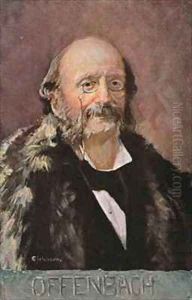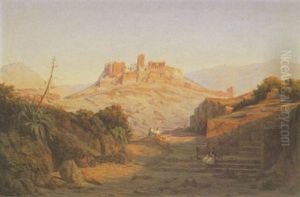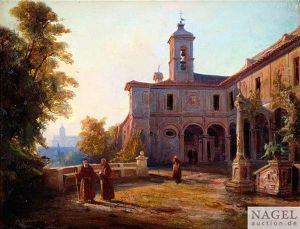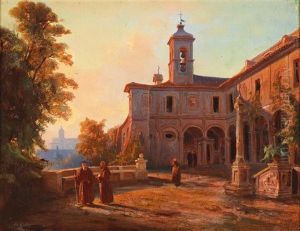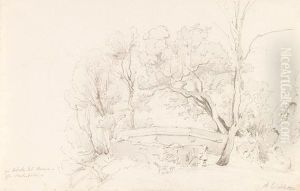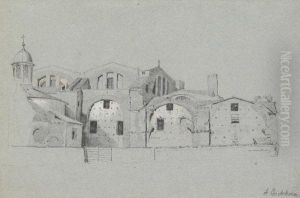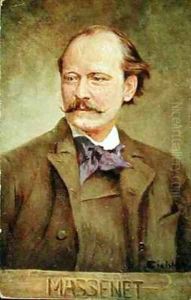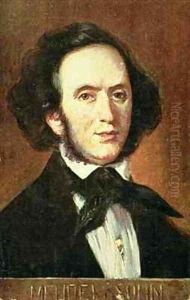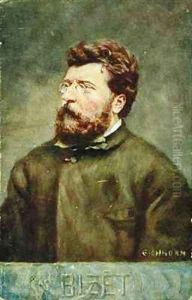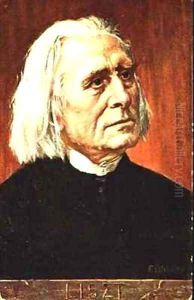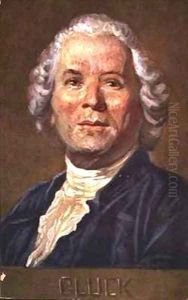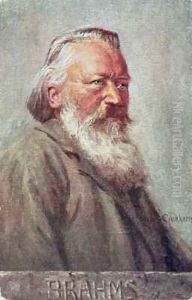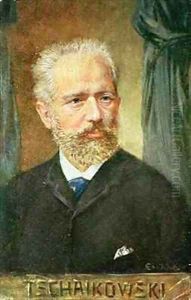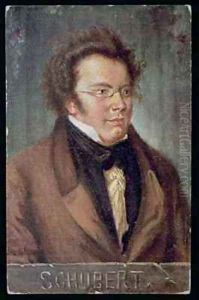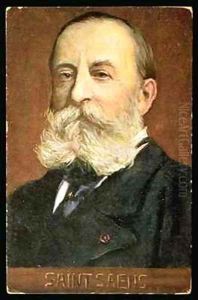Albert Eichhorn Paintings
Albert Eichhorn was a pioneering figure in the study of the history of religions and a significant contributor to early 20th-century biblical criticism. Born on July 1, 1856, in Breslau, Prussia (now Wrocław, Poland), Eichhorn emerged from a context ripe with intellectual curiosity and scholarly innovation, which profoundly shaped his academic pursuits. His work was instrumental in the development of the Religionsgeschichtliche Schule (history of religions school), which aimed to understand Christianity within the broader context of the history of religions through comparative studies.
Eichhorn's education and early career were marked by an engagement with theological studies, initially focusing on the Old Testament. He studied at several prestigious German universities, including Tübingen, Leipzig, and Göttingen, where he absorbed the critical methods of biblical scholarship that were flourishing at the time. His doctoral dissertation, completed in 1880, reflected his growing interest in the New Testament and laid the groundwork for his future research.
Perhaps Eichhorn's most significant contribution to biblical scholarship was his assertion of the mythological and legendary elements in the Bible, particularly in the Old Testament. He argued that understanding these elements was crucial for comprehending the religious mindset of ancient peoples and, by extension, the historical development of Christianity. His approach was revolutionary, as it challenged traditional interpretations of biblical texts and suggested that they should be studied within the same framework as the myths and legends of other ancient cultures.
Eichhorn's career was not without controversy, as his ideas often put him at odds with more conservative theologians and scholars. Despite this, he held several academic positions, including a notable tenure at the University of Marburg, where he influenced a generation of scholars in the history of religions.
Albert Eichhorn's work laid the foundation for modern biblical criticism and the comparative study of religion. His insistence on the importance of understanding the historical and cultural context of religious texts has left a lasting legacy in the field. Eichhorn passed away on August 4, 1926, but his pioneering spirit and scholarly contributions continue to inspire and inform the study of religion and history.
